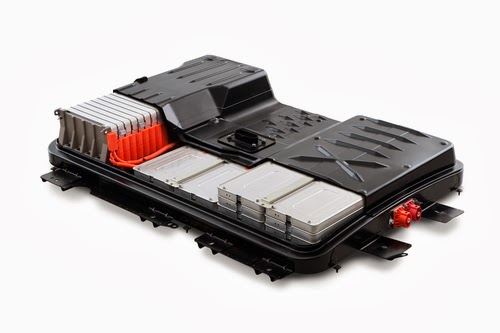The whole car industry must be able to compete against a 200+ mile range $35,000 MSRP electric car from Tesla Motors, by 2017. That fact is probably what’s behind today’s news/rumors that Nissan may be shutting down its battery factories and switching to LG Chem as their battery supplier. In May we learned that Nissan/Infiniti is planning a major refresh of the Leaf in 2017, and introducing a long-awaited Model S competitor by Infiniti, both of which would have a 150-200+ mile electric driving range.
Clearly if the Leaf’s range is not improved, while Tesla matches its price with the Model 3, while offering a 200+ mile electric driving range, the Leaf will die, as will most of the rest of the electric car models. That’s what’s at stake.
According to a Reuters![]() report, Nissan is in talks with LG Chem about shifting battery cell production from Nissan’s own factories to LG Chem’s. This would be a major shift for Nissan because the company went to the expense of building battery pack factories in both Tennessee and England, next door to the respective Nissan Leaf factories.
report, Nissan is in talks with LG Chem about shifting battery cell production from Nissan’s own factories to LG Chem’s. This would be a major shift for Nissan because the company went to the expense of building battery pack factories in both Tennessee and England, next door to the respective Nissan Leaf factories.
Reuters quotes an unnamed Nissan executive saying “We set out to be a leader in battery manufacturing but it turned out to be less competitive than we’d wanted. We’re still between six months and a year behind LG in price-performance terms.”
What that phrase means is price-per-kilowatt-hour, because the lower the battery price point the lower the price can be for a given car. Tesla Motors, for example, is claiming the Gigafactory will let them make battery packs at $100 per kilowatt-hour, which is a fraction of the cost other automakers pay.
Nissan and the other automakers have to reach a similar battery pack price to make affordable $30,000ish MSRP electric cars with 200 miles of electric driving range.
Getting back to the Reuters report, it says an internal review (and negotiations) are underway between Renault and Nissan on plans for battery pack production. Renault wants to move to LG Chem, while Nissan wants to stay with in-house produced battery packs. Back in 2012, Renault and LG Chem announced a deal where LG Chem would supply battery cells for the Renault ZOE sometime around 2017![]() .
.
One option under consideration, according to the Reuters report, is for LG Chem to build battery production facilities at one or more of Nissan’s own battery pack factories.
The problem is that Nissan’s battery production capacity is far higher than its sales of electric vehicles. Nissan’s contract with partner NEC requires the company to buy enough electrodes for the full 220,000 packs a year production capacity, even though sales are at a 67,000 vehicle per year rate. NEC also has to agree to Nissan-Renault making a deal with LG Chem.
The Reuters report cites evidence that Nissan’s current battery pack cost is around $300 per kilowatt-hour, and that Nissan-Renault executives are targeting a $200 per kilowatt-hour price.
- Highway design could decrease death and injury risk, if “we” chose smarter designs - March 28, 2015
- GM really did trademark “range anxiety”, only later to abandon that mark - March 25, 2015
- US Government releases new regulations on hydraulic fracturing, that some call “toothless” - March 20, 2015
- Tesla Motors magic pill to solve range anxiety doesn’t quite instill range confidence - March 19, 2015
- Update on Galena IL oil train – 21 cars involved, which were the supposedly safer CP1232 design - March 7, 2015
- Another oil bomb train – why are they shipping crude oil by train? – Symptoms of fossil fuel addiction - March 6, 2015
- Chevron relinquishes fracking in Romania, as part of broader pull-out from Eastern European fracking operations - February 22, 2015
- Answer anti- electric car articles with truth and pride – truth outshines all distortions - February 19, 2015
- Apple taking big risk on developing a car? Please, Apple, don’t go there! - February 16, 2015
- Toyota, Nissan, Honda working on Japanese fuel cell infrastructure for Japanese government - February 12, 2015











